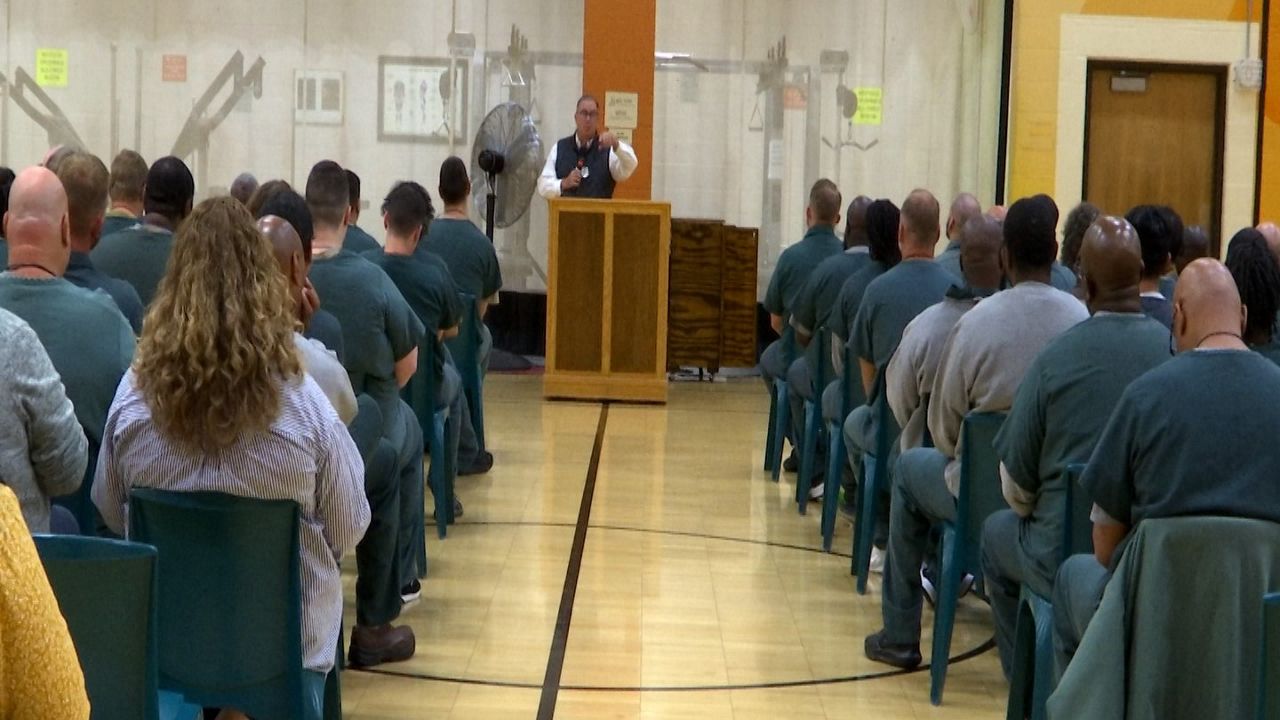MADISON, Wis. — Addiction and incarceration often go hand in hand.
Katelyn Bowers is an addiction treatment specialist at the Oshkosh Correctional Institution. She works to help inmates get sober while behind bars. There are various programs the facility uses to help make sure people who are released from prison avoid relapses.
“Currently, we are running our substance use disorder program, which is a 20-week program,” she said. “We also have the mental illness chemical abuse program, which is a nine-month program.”
The programs include guest speakers who come in to share their personal stories of addiction and recovery.
Tom Farley recently met with inmates at the Oshkosh Correctional Institution. The Wisconsin-native is the brother of famous actor and comedian Chris Farley, who died from an overdose 25 years ago.
Farley runs the Chris Farley Foundation, a nonprofit dedicated to substance abuse prevention and mental health. He also travels as a motivational speaker. During his presentations, he not only discusses his brother’s struggles with addiction, but also his own.

“Oct. 6, next month, I will be five years sober,” Farley said to a room full of inmates in Oshkosh. “I know I have several relapses in my future waiting for me, but I don’t know how many recoveries I have. This is the one that I have now, and I am going to cling to it as long as I can.”
Farley said living in the shadow of his brother’s fame took a toll on him, as did Chris’ death at 33 years old.
“As an adult, I was a social person, mostly because I thought I had to be as a Farley,” Farley said. “I was always out with people, and I always looked like I was having the time of my life, but I couldn’t have been more isolated if I tried.”
That feeling is something many of the inmates Farley was speaking to have experienced firsthand. One inmate who wanted to be called “AG,” to protect his identity, shared his story of getting hooked on marijuana and prescription pills.
“I was intoxicated when I committed my crime,” he said. “It got out of hand when I started hanging around certain people. They were doing things, so I started doing it.”
Now two and a half years sober, AG is close to being released from prison and reuniting with his family.
“This group has helped me learn that I need to get out there and do something better with myself,” he said. “Stay away from the people who are no good for you. It could lead to you being in jail away from your family.”
Farley wanted to stress that he’s no different from AG or anyone battling addiction. He believes the journey of sobriety should be shared with others and that everyone should talk openly about addiction and mental health.
“On that side of the door, things get better,” Farley said. “Maybe not on your time, but it gets better, where it was never getting better before. I’m living proof it gets better.”
Farley hopes his story can motivate and inspire others to get help and get better. He will also speak at the Racine and Redgranite correctional institutions over the next week.



